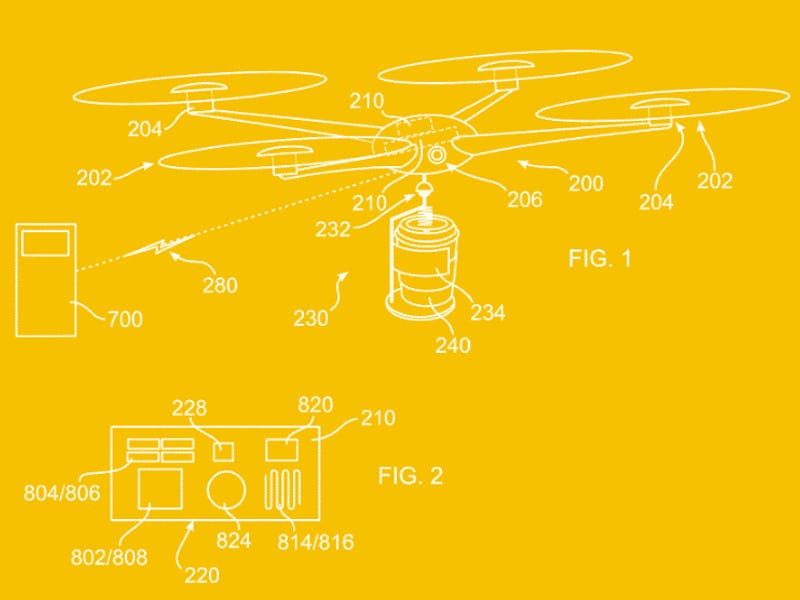IBM Patent Plans to Deliver You Coffee Via Drone, After Reading Your Mind
The new barista drones would have biometric sensors and cameras to plum your "cognitive state"

Drones with cameras and biometric sensors are old news, of course, but if those drones are designed to determine when a person would like a caffeinated beverage, and then deliver it aerially, well, wow.
IBM filed just such a patent on December 22, 2015, and it was approved by the U.S. Patent and Trademark Office two weeks ago, on August 7, 2018.
The filing proposes a variety of methods by which this device would be able to intuit the coffee/chai/etc. needs of its consumer base. Some would merely data-mine personal digital information like electronic calendar data and the sleep schedule implied by smartphone alarm clock patterns, while others would use video feeds and live links with health monitoring devices like Fitbit to monitor caffeine jonesing from “blood pressure, pupil dilation, facial expression analysis,” and “gesture analysis.”
The coffee will also be sealed in protective pouches, during flight, to prevent spilling, as the illustrations included with the patent show:
An Inverse photo illustration.
When pressed by the Financial Times of London, IBM declined to specify whether the coffee-delivery drones were part of its “strategic imperatives” initiative — an ambitious plan by CEO Ginni Rometty to reposition the company’s business model toward emerging technologies like cloud computing, blockchain, and A.I.-powered cognitive services.
The joy of receiving coffee, as seen in a patent application illustration.
For as childish, almost winsomely goofy, as IBM’s coffee drone concept comes across, certain portions of the patent read like those dystopian, near-future corporate satires that George Saunders likes to write, “The Semplica-Girl Diaries”, say, or “CivilWarLand in Bad Decline.”
“A coffee drone,” the patent suggests, “might also take advantage of the social psychological effects by first providing coffee to a person who is popular, famous, or otherwise has a high social status.”
Because “dwindling supply would increase the desirability of the coffee,” the patent’s authors reason that this scarcity could be “leveraged” by allowing others to bid for the remaining cups “as part of an auction, or coffee/drone broker.”
Future generations will probably look at this the same way we look at those 1950s “Kitchen of Tomorrow” newsreels. Or, maybe, they’ll be too busy staring at one of these drones through a groggy torpor, as it preferentially serves coffee to someone better.